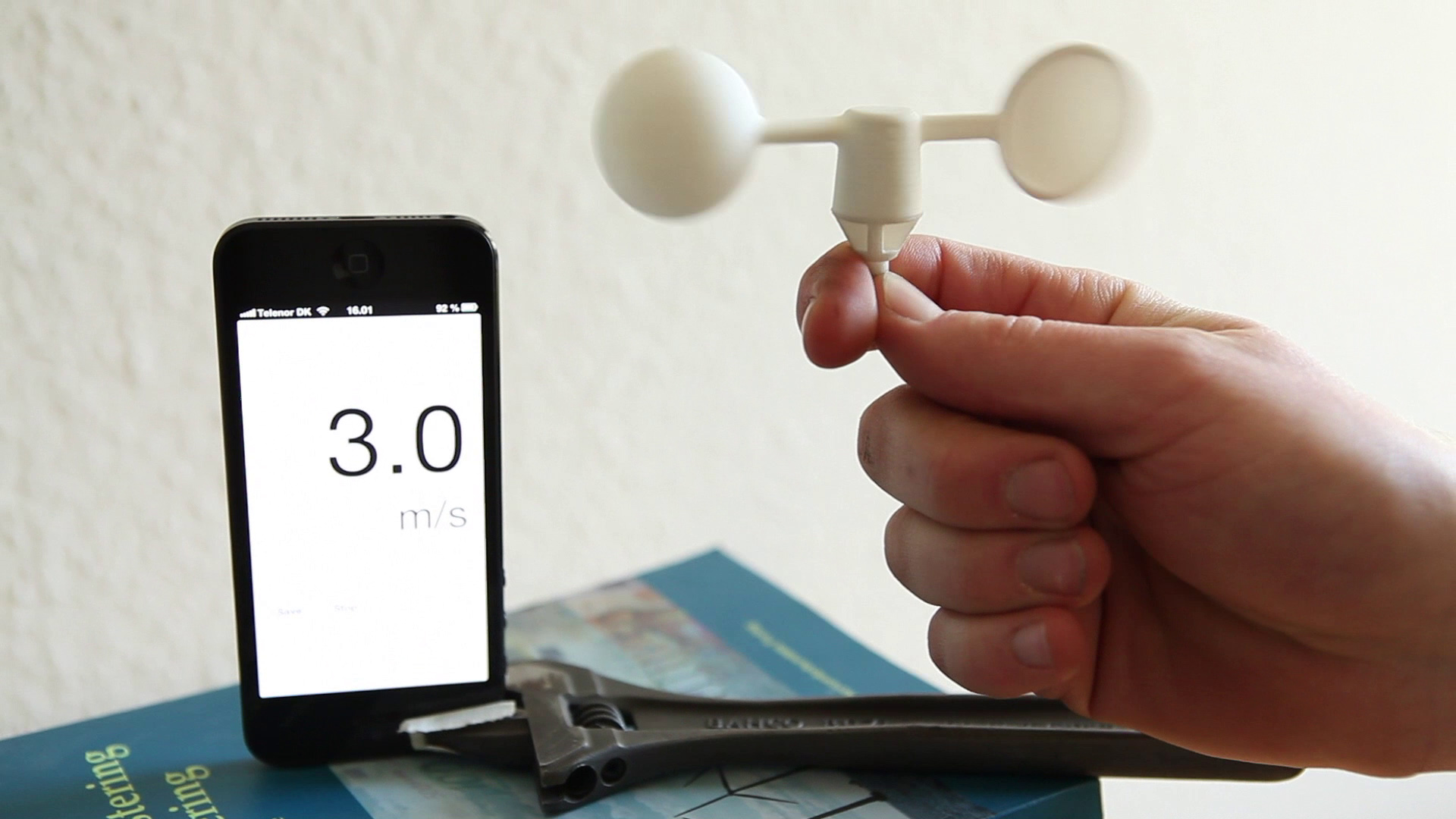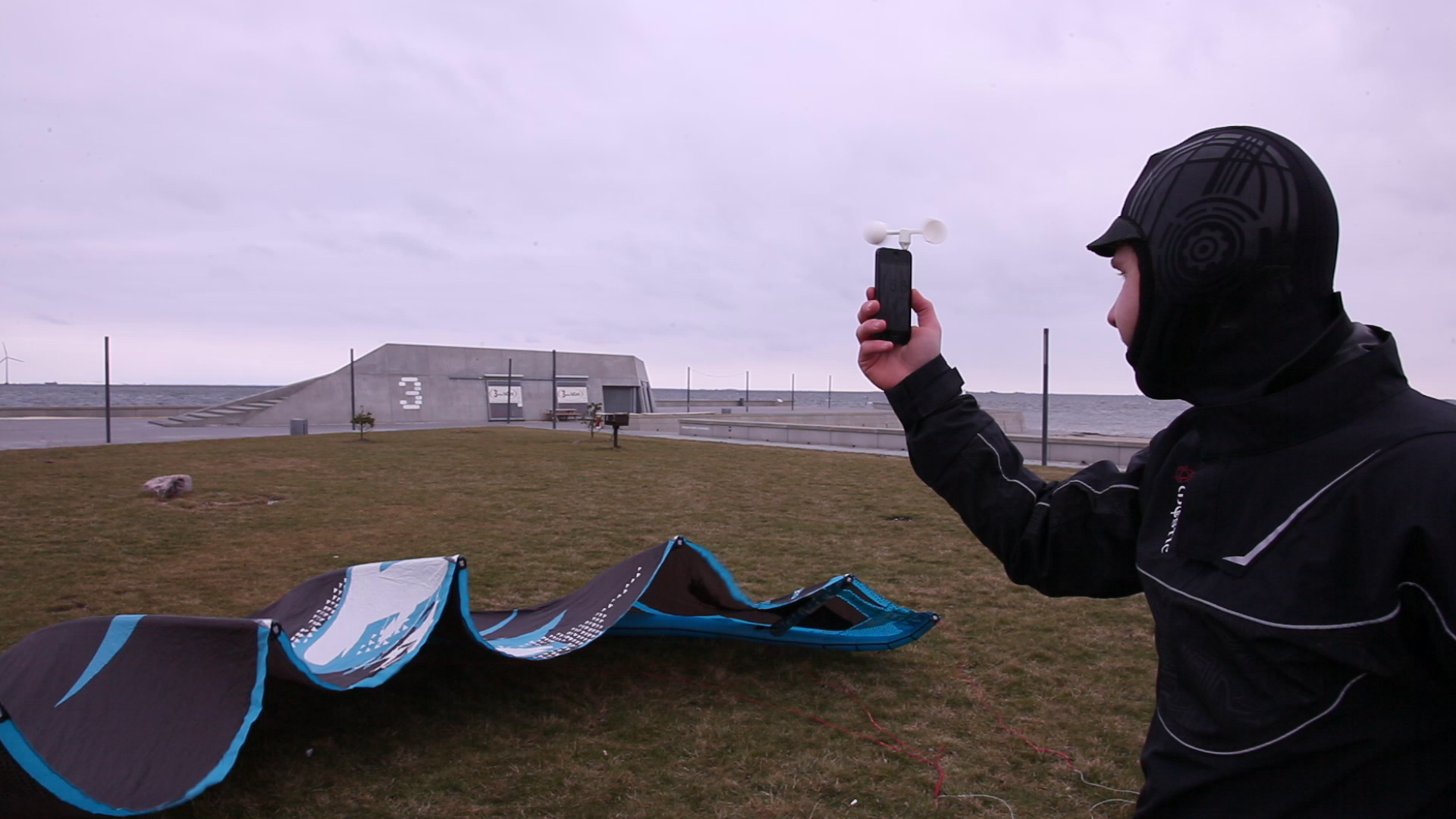Smartphones have a lot of on-board sensors, but do they really have enough? No way, say a slew of recent hardware startups, of which Danish Vavuud is only the most recent. Vavuud is turning to Kickstarter to help build a smartphone-compatible wind meter, one that miraculously contains no electronics and yet still can communicate accurate wind speed measurements wirelessly to iPhones and Galaxy devices.
The Vavuud wind meter provides an easy way to measure wind speed exactly where you are, with a device that’s remarkably inexpensive and deceptively simple. It plugs into the headphone jack of your device, but that’s to give it a stable base; it actually uses two magnets in the rotor, which generate a magnetic field that the smartphone can pick up and process using algorithms normally used for sound processing to translate it to wind speed data. Vavuud co-founder Thomas P. Helms says it’s been tested with iPhone 4, 4S, and 5, as well as Galaxy SII and SIII so far, and it has been calibrated in a wind tunnel at the University of Denmark to ensure accuracy.
 “To our knowledge we are the first to use the magnetometer in smartphones in this way, so we of course think the technology itself is kind of cool,” Helms explained via email. “It’s also cool because on a mechanical level it appears quite simple, but there is some relatively complex math behind it .”
“To our knowledge we are the first to use the magnetometer in smartphones in this way, so we of course think the technology itself is kind of cool,” Helms explained via email. “It’s also cool because on a mechanical level it appears quite simple, but there is some relatively complex math behind it .”
It’s likely that Vavuud will be able to work with any modern advanced smartphone with built-in magnetic field sensors (which is pretty much all of them), so the limited existing test pool shouldn’t frighten away potential backers. The Vavuud is designed to be used by anyone who might find accurate current windspeed readings useful – a potential group of users that includes windsurfers, sailors, paragliders, model plane pilots and more.
 “Surfers, sailors, paragliders etc. have needed an online anemometer for ages to be able to create and share crowd-sourced wind information,” Helms explained. “Because conditions at your favorite spots may depend on very local factors like mountains, could be affected by thermal conditions, and on and on.”
“Surfers, sailors, paragliders etc. have needed an online anemometer for ages to be able to create and share crowd-sourced wind information,” Helms explained. “Because conditions at your favorite spots may depend on very local factors like mountains, could be affected by thermal conditions, and on and on.”
Vavuud is looking to ship the Wind Meter by June of this year, with pre-orders beginning at the £15 level. iOS and Android apps from Vavuud itself are expected to become available at the same time, but it’s easy to imagine how, as with the Thermodo, the developer community might embrace another means of collecting information about the world around you and integrate Vavuud into their own apps.